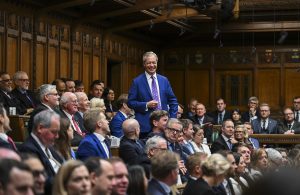The concept of establishing free ports in the UK has some merit, but only in a ‘hard Brexit’ scenario. Free ports have been championed by Rishi Sunak, a Conservative MP, who argues they would increase manufacturing output, reinvigorate regional economies, and promote trade. Free ports are essentially incompatible with current EU rules, and would likely be ruled out should the UK secure a ‘deep and special partnership’ with the EU. However, in the event of ‘no deal’ or a loose trade agreement with the EU, the concept deserves a fair hearing.
Free ports are areas that, although inside the geographic boundary of a country, are considered outside the country for customs purposes. As free trade zones, goods can enter and re-exit the port without incurring usual import procedures or tariffs – incentivising domestic manufacturing. For instance, Nissan utilises a free trade zone in Tennessee, which allows the company to import components with significantly reduced customs duties and manufacture cars on US soil. Such areas in major ports would attract investors and industries and create jobs – up to 86,000, according to Sunak. [1]
If the UK does secure a ‘deep and special partnership’ [2] with the EU, as outlined by the Prime Minister, the concept of free ports may be a non-starter. A deep and special partnership, if it aligns the UK to EU rules on an on-going basis, would mean the UK would have to comply with EU general legal provisions which prevent unfair competition between firms. [3] EU state aid regulations also limit the amount of support the Government could give to businesses using free ports. [4] Usually through generous tax breaks, state aid is common practice in developed countries who have introduced free ports or free trade zones.
Maintaining a close relationship makes economic sense. Businesses can already export and import goods and services throughout the Single Market without tariffs, which is why major business groups like the CBI and British Chambers of Commerce back the closest relationship possible with the EU. [5] [6] Free ports have the potential to boost manufacturing industries and create jobs, but it is unlikely that the benefits of free ports would outweigh the cost of losing a close relationship with Europe. As James McGrory, Executive Director of Open Britain, argues, free ports would ‘damage our economy by cutting Britain off from our biggest and most important trading partner – Europe.’[7]
However, free ports deserve a fair hearing if the UK leaves the EU without a deal or a comprehensive trade agreement. As Sunak points out, free ports have the ability to boost employment and high-skilled jobs in regional economies. [8] This currently works well in Tennessee. 8,400 workers are employed within a free trade zone by Nissan with a total annual payroll of $399 million. [9] In a state that lacks skilled jobs, the training and career prospects offered by Nissan is welcome. Free ports could similarly boost manufacturing jobs in the North West, North East and Scotland.
Many of Britain’s ports are well placed to handle free trade zones. They have access to high quality shipping infrastructure, private capital, and a labour force which has access to a good education system for training and skills. Britain’s ports are already used to handling a high volume of goods – 96 per cent of all UK trade by volume passes through the country’s ports. [10] Southampton, for instance, is the third most productive port in Europe, [11] which would encourage further investment.
While free ports are conceivable, they may not be desirable. The introduction of a free ports system would mean cutting ties with Europe in a manner which would likely damage the wider economy. The benefits would not outweigh the costs. However, if there is a ‘no deal’ scenario or a loose trading arrangement is secured, then free ports may be an idea worth considering.
[1] Centre for Policy Studies, 14 November 2016, link
[2] Sky News, 27 April 2017, link
[3] Bond Dickinson, 22 June 2017, link
[4] Daily Telegraph, 14 November 2016, link
[5] CBI, December 2016, link
[6] British Chambers of Commerce, February 2017, link
[7] Open Britain, 14 November 2016, link
[8] Centre for Policy Studies, 14 November 2016, link
[9] Centre for Policy Studies, 14 November 2016, link
[10] UK Trade and Investment, May 2013, link
[11] JOC Group, November 2014, link



